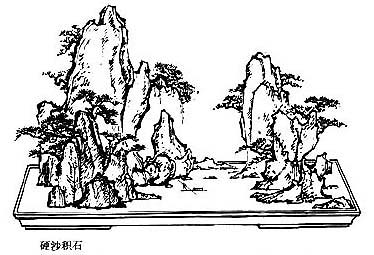詩
經
Shi Jing 
 – Le Canon des Poèmes
– Le Canon des Poèmes
Le plus ancien recueil connu de poésie chinoise, plus de trois cents chansons, odes et hymnes. Tr. Legge (en) et Granet (fr, incomplète).
Shijing II. 4. (194)
| ¦p ©¼ ¦æ ÁÚ «h Ãû ©Ò ¿² |
¹@ ¨¥ ¤£ «H |
¦p ¦ó ©þ ¤Ñ |
±f ¤ê ¦¡ »N ÂÐ ¥X ¬° ´c |
¨¹ §g ½Ñ «J ²ö ªÖ ´Â ¤i |
¤T ¨Æ ¤j ¤Ò ²ö ªÖ ¦g ©] |
¥¿ ¤j ¤Ò Â÷ ©~ ²ö ª¾ §Ú áC |
©P ©v ¬J ·À Ãû ©Ò ¤î ©Ñ |
Y ¦¹ µL ¸o ²_ E ¥H ¾Q |
ªÙ ©¼ ¦³ ¸o ¬J ¥ñ ¨ä ¶d |
ÌÉ ¤Ñ ¯e «Â ¥± ¿c ¥± ¹Ï |
° ³à °§ ÄD ±Ù ¥ï ¥| °ê |
¯E ¯E ©þ ¤Ñ ¤£ Â@ ¨ä ¼w |
«B µL ¥¿ |
||
| ©õ º¸ ¥X ©~ ½Ö ±q §@ º¸ «Ç |
¹« «ä ª_ ¦å µL ¨¥ ¤£ ¯e |
¿× º¸ ¾E ¤_ ¤ý ³£ ¤ê ¤© ¥¼ ¦³ «Ç ®a |
¥ç ¤ª ¥i ¨Ï «è ¤Î ªB ¤Í |
¤ª ¤£ ¥i ¨Ï ±o ¸o ¤_ ¤Ñ ¤l |
ºû ¤ê ¤_ ¥K ¤Õ ´Æ ¥B ¬p |
Ðø ¨o ¯à ¨¥ ¥© ¨¥ ¦p ¬y Ú °` ³B ¥ð |
«s «v ¤£ ¯à ¨¥ ê ¦Þ ¬O ¥X ºû °` ¬O ·ñ |
Å¥ ¨¥ «h µª òû ¨¥ «h °h |
¤Z ¦Ê §g ¤l ²ö ªÖ ¥Î °T |
´¿ §Ú 暬 ±s å£ å£ ¤é ·ñ |
¦¥ ¦¨ ¤£ °h °§ ¦¨ ¤£ ¹E |
J ¤£ ¬Û ¬È ¤£ ¬È ¤_ ¤Ñ |
¤Z ¦Ê §g ¤l ¦U ·q º¸ ¨ |
«B µL ¥¿ |
||
Great and wide Heaven,
How is it you have contracted your kindness,
Sending down death and famine,
Destroying all through the kingdom ?
Compassionate Heaven, arrayed in terrors,
How is it you exercise no forethought, no care ?
Let alone the criminals : –
They have suffered for their offences ;
But those who have no crime,
Are indiscriminately involved in ruin.
The honoured House of Zhou is [nearly] extinguished,
And there is no means of stopping or settling [the troubles].
The Heads of the officers have left their places,
And no one knows my toil.
The three high ministers, and [other] great officers,
Are unwilling [to attend to their duties] early and late.
The lords of the various States,
Are unwilling [to appear at court] morning and evening.
If indeed he would turn to good, –
But on the contrary he proceeds to [greater] evil.
How is it, O great Heaven,
That he will not hearken to the justest words ?
He is like a man going [astray],
[Who knows] not where he will proceed to.
All ye officers,
Let each of you reverently attend to his duties.
How do ye not stand in awe of one another ?
Ye do not stand in awe of Heaven.
War has done its work, but he withdraws not [from evil] ;
Famine has done its work, but he goes not on [to good] ;
So that I, a [mere] groom of the chambers,
Am full of grief and in pain daily.
All ye officers,
Ye are unwilling to declare [the truth to him].
When you hear a question, you [simply] answer it,
And when slander touches you, you withdraw.
Alas that [right words] cannot be spoken,
Which come not from the tongue [only] !
The speakers of them are sure to suffer.
Well is it for the words that can be spoken !
The artful speech flows like a stream,
And the speakers dwell at ease in prosperity.
It may be said about taking office,
That it is full of hazard and peril.
By [advice] that he says cannot be followed,
You offend against the Son of Heaven.
By advice that he says will be followed,
You excite the resentment of your friends.
I say to you, ' Remove to the royal capital, '
And ye say that you have not got houses there.
Painful are my inmost thoughts, and I weep blood ; –
Every word I speak makes me hated ;
But when you formerly left to reside elsewhere,
Who was it that made houses for you ?
Legge 194

Le Canon des Poèmes – Shi Jing II. 4. (194) – Chinois on/off – Français/English
Alias Shijing, Shi Jing, Book of Odes, Book of Songs, Classic of Odes, Classic of
Poetry, Livre des Odes, Canon des Poèmes.
Le Canon des Poèmes, Les Entretiens, La Grande Étude, Le Juste Milieu, Les Trois Caractères, Le Livre des Mutations, De la Voie et la Vertu, 300 poèmes Tang, L'Art de la guerre, Trente-six stratagèmes
Bienvenue, aide, notes, introduction, table.
Index – Contact – Haut de page
